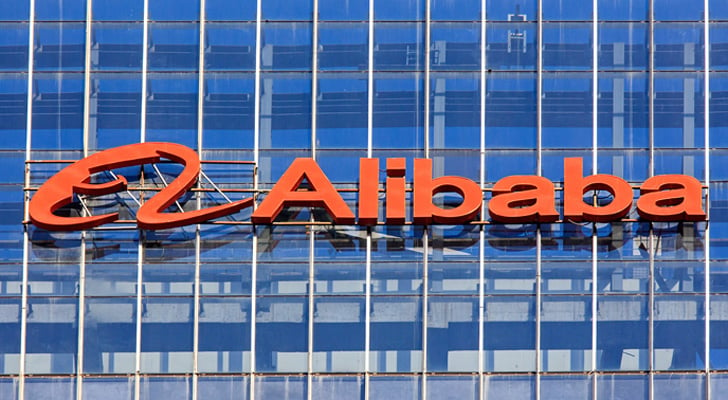Over the course of the past few months, at separate times, I’ve argued that sooner or later, time and competition are going to catch up with Amazon.com, Inc. (NASDAQ:AMZN). Though its ever-increasing size allows it to reach deeper into consumers’ pockets in more ways, each of a company’s moving parts makes the whole machine more prone to failure.
It’s a warning that also needs to be passed along to Alibaba Group Holding Ltd (NYSE:BABA) shareholders, particularly in light of some recent developments from its top competitors.
It may not matter right now, or even a few months from now, but other e-commerce and internet companies — frustrated with Alibaba’s dominance — are finally starting to find ways to beat Alibaba at its own game.
Partnerships Are the Key
How does the old saying go? Eventually, every contest becomes a two-horse race?
It’s not a universally true, immutable axiom. There is quite a bit of credibility to the idea, though. The Coca-Cola Co (NYSE:KO) and PepsiCo, Inc. (NASDAQ:PEP) were for all intents and purposes the only relevant soda players when soda was their core product. All other players were either acquired or obliterated.
The same idea more or less applies to AT&T Inc. (NYSE:T) and Verizon Communications Inc. (NYSE:VZ), which dominate the United States’ telecom scene, leaving the rest of the industry fighting for leftovers and scraps.
Times have changed a bit, though. Now, an outright merger or acquisition is less likely than a formidable partnership intended to take aim at the dominant player in an industry.
Enter SINA Corp (NASDAQ:SINA) and JD.Com Inc (ADR) (NASDAQ:JD). The former operates one of China’s search engines, and the latter is of course China’s second-biggest e-commerce outfit.
The two have teamed up to share information that will ultimately give both parties greater insight about consumer behaviors. Not that Alibaba isn’t armed with plenty of consumer behavior data of its own, but it’s a direct jab at China’s e-commerce powerhouse.
Were it the only team-up of its ilk, it might be able to be dismissed. It’s hardly the only one, though.
Case(s) in point? Late last year, Chinese gaming and app outfit Tencent Holding/ADR (OTCMKTS:TCEHY) partnered up with JD.com and purchased a stake in China’s third-largest e-commerce platform, Vipshop Holdings Ltd – ADR (NYSE:VIPS).
Early this year, JD partnered with Meili in a move that’s intended to woo female shoppers away from Alibaba’s Tmall.
Then just this month, JD.com made a pitch to European makers of luxury goods, saying it could do a better job of keeping counterfeit goods in check than Alibaba has. And, maybe it can. If nothing else, the sheer size of Alibaba’s Tmall makes it difficult to keep close tabs on every listed item.
These recent developments are, more importantly, a microcosm of the competitive thinking and partnering being done almost exclusively to slow Alibaba down. When the whole world is gunning for you specifically, enough shots will eventually hit the target to create trouble.
To that end, know that Alibaba won’t be stifled by one sweeping blow. It will be nagged into submission by all the nickels and dimes it has to spend to remain the beast it’s become.
Bottom Line for BABA Stock
Don’t read too much into the warning, if you’re asking yourself, “Should I buy Alibaba stock today?” Though it’s something that may adversely impact the Alibaba stock price in 10 years, it’s not going to matter much over the course of the next 10 days, or even the next 10 months. Much can happen in the meantime, and the Alibaba story is still a good one.
You can never afford to assume an organization is perpetually invulnerable, though. Just ask the Eastman Kodak Company (NYSE:KODK) or Xerox Corp (NYSE:XRX), neither of which saw the winds of change blowing in time to do anything about it.
That’s not to suggest any headwind Alibaba could meet will be as dramatic as the plunge into obsolescence that Xerox and Kodak suffered. It is to say, though, that investors need to be very careful about making assumptions. BABA isn’t necessarily the bulletproof name some believe it is.
And for what it’s worth, it’s not like Amazon doesn’t continue to face more and more seemingly innocuous threats as well.
Take for instance how Walmart Inc (NYSE:WMT) and Alphabet Inc (NASDAQ:GOOGL, NASDAQ:GOOG) got together late last year to develop a voice-activated shopping app for Google’s smart speaker.
Neither company was theoretically the best partner for the other to cocreate the platform. In both cases, Amazon itself was arguably the more potent partner. But neither company feels like continuing to feed its competition. BABA is in that same boat as Amazon.
It’s a small step to be sure, but enough small steps can add up over time.
As of this writing, James Brumley did not hold a position in any of the aforementioned securities. You can follow him on Twitter, at @jbrumley.

